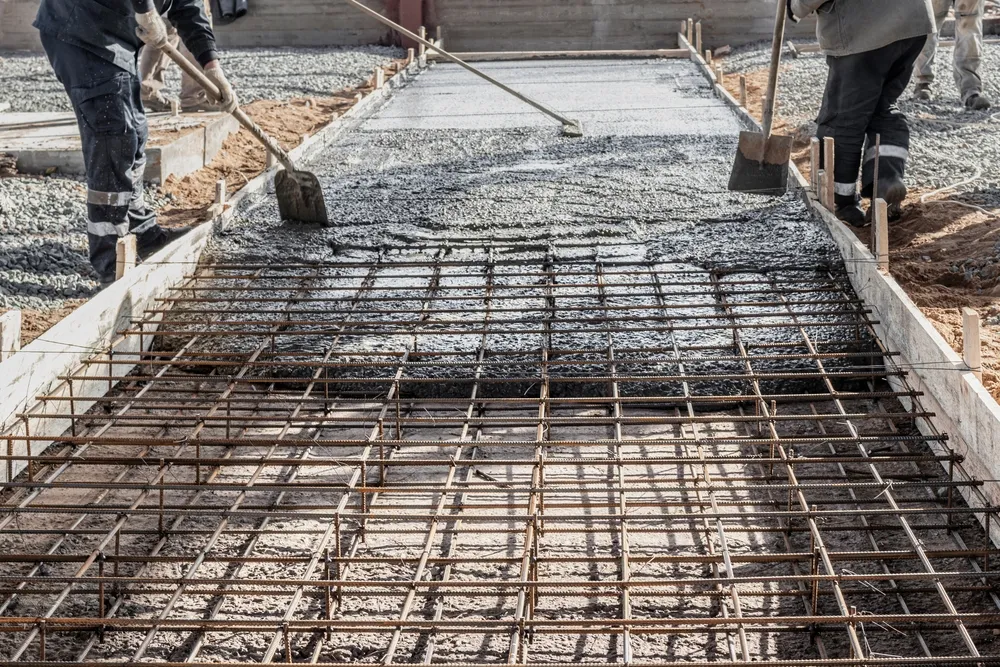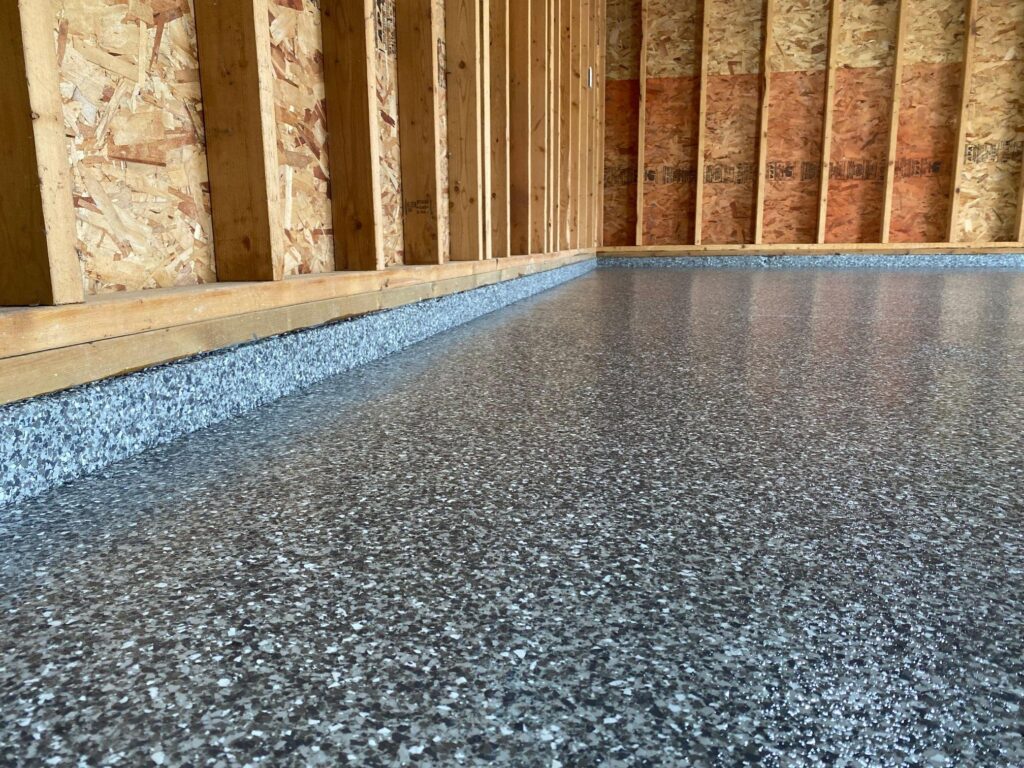In the realm of construction and development, concrete plays a pivotal role. Its application extends from foundations to driveways, making it a staple in residential and commercial projects. The concrete business, consequently, stands as a lucrative opportunity for aspiring entrepreneurs. This guide delves into the essentials of starting and running a successful concrete business, aligning with the industry’s growing demands and ensuring profitability.
Step 1: Understanding the Concrete Business Industry
The U.S. concrete contractors industry, valued at over $65 billion, comprises numerous small businesses. The industry’s average project price, such as pouring a 400-square-foot driveway, can reach about $2,000 for labor alone, highlighting the sector’s profitability. However, building a successful business in this field requires more than just hard labor; it demands strategic planning and a solid foundation of industry knowledge.
Step 2: Evaluating the Pros and Cons
Like any business venture, the concrete sector comes with its set of advantages and challenges. On the positive side, the high demand for concrete services drives the significant profit potential. Anyone can pay more happily for quality work, and services like concrete pouring are continually needed due to wear and tear. However, potential business owners should be prepared for the intensive labor and substantial equipment costs.
Step 3: Initial Costs and Earnings Potential
Starting a concrete business requires an initial investment ranging from $11,000 to almost $20,000, with significant expenses in vehicles and tools like portable concrete mixers. The revenue potential is substantial, with an average project price of $1,500 and an achievable annual revenue of over $1.5 million as the business expands. The profit margin can initially be around 50%, but it may adjust as you scale your operations.
Step 4: Market Research and Identifying Opportunities
To enter this competitive market successfully, conduct thorough market research. Understanding your customers, competitors, and the business landscape is crucial. Researching local concrete businesses can reveal service gaps you could fill, such as a need for decorative concrete masonry.
Step 5: Services to Offer in Your Concrete Business
Your service offerings could include driveways, home slabs, garage floors, patios, sidewalks, porches, concrete repairs, and decorative concrete. When setting prices, consider labor, material costs, and other operational expenses, aiming for an initial profit margin of about 50%.
Step 6: Identifying Your Target Market
Your primary customers will likely be homeowners, typically more established individuals or families. Building partnerships with other contractors or remodelers to gain subcontracting work can also be a strategic move.
Step 7: Choosing Business Premises
Initially, operating from home can keep costs low. However, hiring workers and renting office space might become necessary as your business grows. Select a central location with good accessibility and minimal renovation needs.
Step 8: Naming Your Concrete Business
Choosing a business name that is memorable and relevant is crucial. Short, unique, and catchy names that are easy to say and spell perform better. Including keywords in your business name, such as ‘concrete,’ can also aid in online search visibility.
Step 9: Crafting a Detailed Business Plan
A concrete business plan should include an executive summary, business overview, product and service description, market analysis, competitive analysis, sales and marketing strategies, management team information, operations plan, and financial projections. This plan serves as a roadmap for your business and can be instrumental in attracting potential partners or investors.
Step 10: Financing Your Concrete Business
Securing adequate funding is crucial for the smooth operation and growth of your concrete coatings business. For a concrete coatings enterprise, options include personal savings, loans from financial institutions, or seeking investors specifically interested in the coatings industry. Be prepared with a detailed business plan when approaching lenders or investors, emphasizing the specifics of the coatings sector, outlining how their funds will be used, and highlighting the expected return on investment. Consider the costs of specialized equipment for coatings, vehicles, staff salaries, marketing strategies tailored for coatings, and other operational expenses when calculating the funding required.
Step 11: Licensing and Legal Requirements
Compliance with legal requirements is essential for operating a concrete business. This includes obtaining a contractor’s license, which varies by state, and ensuring that all local and state regulations are met. In addition to licensing, ensure you have the proper permits for your operations.
Step 12: Building a Skilled Workforce
A concrete business’s success heavily relies on its workforce’s skills and reliability. Hiring experienced and skilled workers can significantly impact your services and enhance customer experience. A dedicated team improves work efficiency and helps build a reputable brand.
Step 13: Effective Marketing and Customer Acquisition
Marketing is a real game changer for attracting and retaining customers. You can use your social media handles and websites and consider local advertising in newspapers or construction-related publications. Word-of-mouth referrals are particularly powerful in this industry, so ensure customer satisfaction with high-quality services. Attend regional trade shows or community events to make friendly relations with potential clients and other businesses in the construction industry.
Step 14: Managing Your Concrete Business for Long-Term Success
Effective business management involves more than day-to-day operations. It requires strategic planning for future growth and adapting to market changes. Regularly review your business plan, keep track of financial performance, and be open to exploring new markets or services. Stay informed about industry trends and technological advancements that could benefit your business. Maintaining strong relationships with suppliers, contractors, and clients is also crucial for sustained success.
Step 15: Embracing Technology in the Concrete Business
Incorporating technology into your business operations can enhance efficiency and accuracy. Advanced concrete mixing and pouring tools can also increase productivity and improve the quality of your work. Keeping yourself updated with the latest technological advancements in the construction industry can give your business a competitive edge, making it more appealing to modern clients who value efficiency and innovation.
Step 16: Environmental Considerations and Sustainable Practices
Eco-friendly solutions are increasingly important in the construction industry. As a concrete business owner, you can contribute by adopting eco-friendly practices. This includes using sustainable materials, recycling waste, and employing energy-efficient methods. Offering green alternatives can not only reduce the environmental impact of your operations. Still, it can also attract customers who are conscious of ecological issues. Staying informed about environmental regulations and best practices is crucial for maintaining a responsible and forward-thinking business model.
Conclusion
Starting a concrete business involves careful planning and understanding of the industry. By following this guide, you can establish a solid foundation for your business, positioning it for growth and success. Remember, the key to thriving in this industry lies in hard work, strategic planning, and effective execution.
FAQs
What are the initial costs involved in starting a concrete business?
The startup costs for a concrete business typically range from $11,000 to $20,000. This includes expenses for vehicles, tools, and a portable concrete mixer. Additional costs may include licensing, insurance, and marketing expenses.
Do I need special licenses or permits to start a concrete business?
All you need is a relevant license to operate a concrete business, which varies depending on your location. Most states require a contractor’s license. Additionally, you should check local regulations for any other permits or compliance requirements specific to your area.
How can I market my concrete business effectively?
Effective marketing strategies include:
- Creating a professional website.
- Utilizing social media.
- Local advertising.
- Networking within the industry.
Word-of-mouth referrals are also powerful, so focus on delivering high-quality services to build a strong reputation.
Is it necessary to have construction experience before starting a concrete business?
While having construction experience is beneficial, it is not mandatory. You can learn about concrete work through various courses and certifications. However, practical experience in construction can provide valuable insights and skills necessary for successfully running a concrete business.
Can a concrete business be environmentally friendly?
Using eco-friendly materials, recycling waste, and employing energy-efficient methods can make your concrete business more environmentally friendly. Offering green alternatives can also attract environmentally conscious customers.

